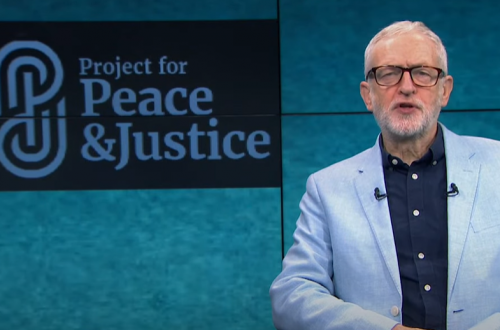Whatever the demerits of the feverishly pro-YES Wings Over Scotland as run by Stuart Campbell – and favoured by SNP MSPs and YEScotland literature alike – whose pursuit of those ‘guilty’ of perceived slights against him borders on clinical psychopathy, it was one of the few online sources which predicted the super-majority at Holyrood the SNP secured in 2011. That said, the result was based on a 50% turn-out which secured many constituency seats by triple figure majorities and some by double figures, and pollsters which miscalled it had based their predictions on Westminster voting intentions which have been significantly divergent from Holyrood.
One manifestation of Campbell’s disagreeable personality trait has been his knowing and gleeful use of Archive.is to subvert the online subscription function of Scottish newspapers. (Not to mention his refusal to accept the scotching of his compassion-free position on Hillsborough which even Kelvin Mackenzie has repudiated.)
Perhaps he now will desist with the the Sunday Herald now that this publication has come out in favour of a YES vote (using a design provided by Alistair Grey who would restrict employment in a post-YES to designated nationalities).
The editorial employs similar arguments to the optimistic line which characterizes current YES claims. That the “prize is a better country”, as there are no insurmountable unknowns or that the current knowns shall only be positive. Or that those intended to vote NO might be demonstrable be anti-Scottish, as Campbell articulated recently in response to his own leading questions in an Panelbase poll which asked pro-Union respondents if they thought Scotland would not receive more favourable treatment as part of the UK without considering if they believed this would be extended to EWNI.
There is no doubt in my mind that an independent Scotland – even the pretendy independence advocated by all but the nativist purists such as Rosie at Subrosa Blonde and Jim Sillars et al., whom I admit I have a soft-spot for – could function tolerably-well. The question remains, why should she?
Over recent months, it has became impossible to deny that Fish-heid McMoonface plainly is not a political demigod but the tallest man in Lilliput whose retorical box of tricks frequently is bested on the floor of Holyrood, and that deploying his deputy, Fish-heid NicMoonface has not always had a positive effect (not least her and Holyrood Labour leader, Johann Lamont’s unedifying politiking spat following a crush-death at Liberton High School resulting from Scotland-wide substandard school buildings).
Just as I previously had noted McMoonface’s arrogant bordering on impertinent use of the first personal plural pronoun when discussing Scottish policy/opinion, I now am noting the insistence that a YES vote is not one for the SNP (the same Party led by a man keen on using the first person plural pronoun when discussing Scottish policy/opinion). And yet he continues acting as the public face as opposed to Blair Jenkins or Denis Canavan of YEScotland.
Just as he thought the political merkat was forgetting about the GQ interview with Alistair Campbell (which I discussed here) in which the tasteless audacity of using England’s national saint day to argue that an independent Scotland could champion Englishes (imagine the outrage had St. Andrew’s Day been used to suggest the Scotland could not function without the UK, nevermind England; see his pudding-faced nationalistic and histrionic response to the observation that haggis is an Old English word) was matched only by his hopeless parochialism in viewing the resurgence of Russian nationalism as worthy of consideration even as it was destabilizing Ukraine prior to a military incursion, came his bizarre swagger in his speech given to the European Commission.
Not suggesting to them how an independent Scotland could preform well in the EU and would be more beneficial than, say, Montenegro; but issuing fiats as to she would be a lynchpin in the same way, I suppose, Scotland would collapse without the involvement of Inverness. And, if they did not consider their interests subordinate to Scottish/his whims:
We propose a practical, common sense approach to membership, which means that there is no detriment – none whatsoever – to any other member of the European Union as a result of Scotland’s continuing membership. And the alternative – the fishing fleets of 12 countries being denied any access to Scottish waters and as a consequence, their access to Norwegian waters, which is also dependent on Scottish access; […]
Without the back-up of the Senior Service, the SDF – presumably based at Faslane, 40 miles from the seat of Government and a day sail from the North Sea – would have a perfect right to prevent foreign fleets from accessing Scottish fields. What it would have some difficulties in making the case for under international convention is frustrating free transit through Scottish waters to another zone.
Then Scottish fishermen might have difficulties in securing access to other zones which they currently use, or those countries given a preemptive ultimatum to buy Scottish catches. And that is before we get onto the insignificance the Scottish fleet has for the big hitters of the EU, France and Germany.
This would appear to be the “if you don’t give us unfettered access, you can get to Forfar! PS You still will buy our catches, yes?” form of negotiation.
[…] 160,000 EU workers and students, and of course voters, in Scotland suddenly uncertain about their status; five and a quarter million people ceasing to be EU citizens against their will – this alternative, as Sir David Edward points out, is clearly absurd. But it is more than absurd. There is simply no legal basis in the EU treaties for any such proposition. And it is against the founding principles of the European Union.
“EU citizenship” does not exist as does British citizenship. It is a series of optional add-ons for existing national citizenships, and would be retained through post-YES Scots’ continuing British citizenship (unless he is intended to deny Scottish citizenship to those Scots wishing to retain British citizenship; which is, I suppose, possible). In any case, in the event of a YES vote, Holyrood/Scots would have elected to separate themselves from the legal status of the UK.
The future status of the citizens of EU states in Scotland would be, according to the Edinburgh Agreement, Holyrood’s to address.
What is “not our problem, guv” in the 23 other working/official languages of the EU?
Then there was the stuff about Scotland being a “nation of drunks” which made it difficult to sell whisky as a beneficial product. Although I am not entirely sure I disagree with the first bit, the second bit does dispute his previously enunciated position that the minimum pricing on alcohol was solely about harm reduction.
Scotland, wha’ like us? None, thank fuck.


